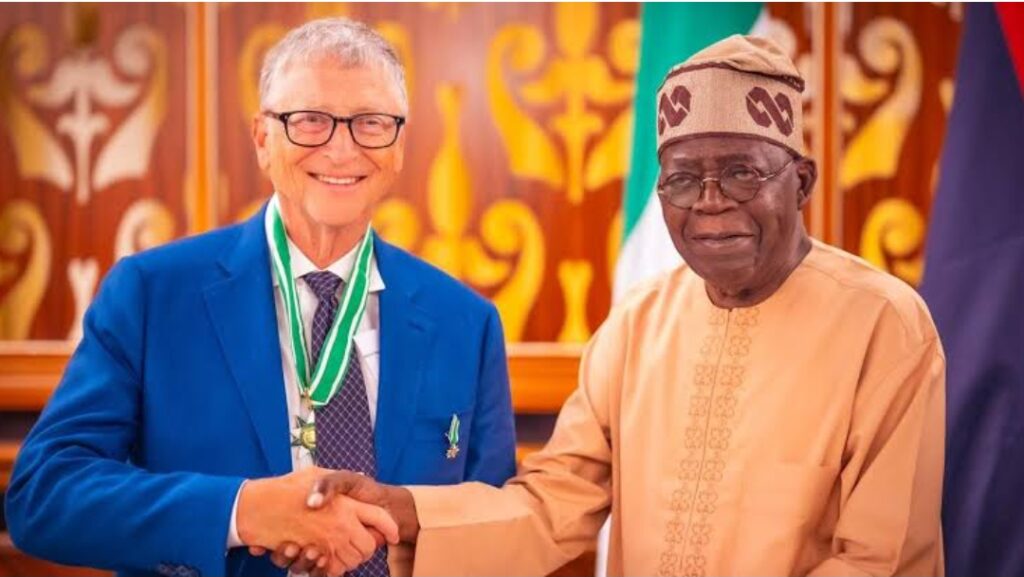Bill Gates Questions Nigeria’s Healthcare Budget Allocation
Microsoft co-founder and philanthropist Bill Gates has expressed concern over Nigeria’s healthcare budget allocation, describing it as “very, very small” and insufficient to tackle the country’s healthcare challenges. Despite the country’s significant health needs, Gates noted that Nigeria’s budget for health falls short of the Abuja Declaration target of 15% of the total budget.
He expressed this in an interview with journalist in Lagos on Wednesday.
He , however, stressed that the budgetary allocation of Nigeria to health spending is insufficient to address its healthcare challenges, resulting in high maternal mortality, child deaths, and disease outbreaks.
“When you look at the numbers, the amount Nigeria spends on healthcare is very, very small. It is not just about percentages; in absolute terms, Nigeria’s budget for health is insufficient to tackle the crises it faces,” he said.
He highlighted increase in public funding, better governance, and sustained political commitment as the requirement to tackle healthcare challenges.
According to President Bola Tinubu’s 2025 budget proposal, the health sector has been allocated N2.48 trillion, representing only 5.2% of the total budget. Gates emphasized that collaborative efforts between donors and the government are essential to building substantial health investments, but ultimately, the government must take ownership of its healthcare system.
“We can assist as partners, but the foundation of a functioning health system has to be built and maintained by the government,” Gates said during a roundtable discussion with journalists in Lagos. He also advised countries to build internal resilience, stressing that dependence on donor support and international partnerships for critical health programs is unsustainable .
He met with President Tinubu and discussed ways to improve healthcare delivery, highlighting the importance of primary healthcare and the role of African leadership in driving progress .
He stated this during a roundtable discussion with a group of journalists in Lagos on Wednesday, acknowledging the global crisis is challenging the progress of healthcare.
“We understand that the world is facing numerous challenges, but we believe that investing in health innovations is crucial for creating a better future for all,” he said.
The billionaire expressed displeasure over the funding cuts occassioned by the executive order of the US President, Donald Trump, to ban foreign aid through the State Department and US Agency for International Development (USAID).
“I’m very upset about the funding cut and we’ll have more HIV deaths, more malaria deaths, more maternal deaths. There’s just no denying that that money was being well spent,” he said.
He advised countries to build internal resilience, saying recurrent dependence on donor support and international partnerships for critical health programmes is unsustainable.
“In the long run, you can’t depend on aid to fund your essential health systems. Countries need to build resilience internally,” he stated.
Gates further explained that his foundation remained committed to supporting Nigeria in areas such as immunisation, polio eradication, nutrition, maternal health, and agricultural development.
He, however, stressed that such support is meant to complement, not replace domestic action.
“Nigeria has the potential to lead Africa in health innovation and service delivery. But you have to make the investments now. The dividends will come later, but the seeds must be planted today,” he said.
His, concerns come as his foundation, the Bill and Melinda Gates Foundation, pledges to spend $200 billion over the next 20 years to advance progress on saving and improving lives, with a significant portion going to Africa. The foundation will focus on partnering with governments that prioritize the health and wellbeing of their people.
Gates’ visit to Nigeria is part of his efforts to strengthen partnerships with African governments and promote health innovation on the continent
Over the next two decades, the foundation will work together with its partners to make as much progress as possible towards three primary goals: end preventable deaths of moms and babies; ensure the next generation grows up without having to suffer from deadly infectious diseases; and lift millions of people out of poverty, putting them on a path to prosperity. At the end of 20 years, the foundation will sunset its operations.


